Pros and cons of national service for 18-year-olds
Rishi Sunak's mandatory scheme for 18-year-olds labelled 'headline-grabbing gimmick' by Labour
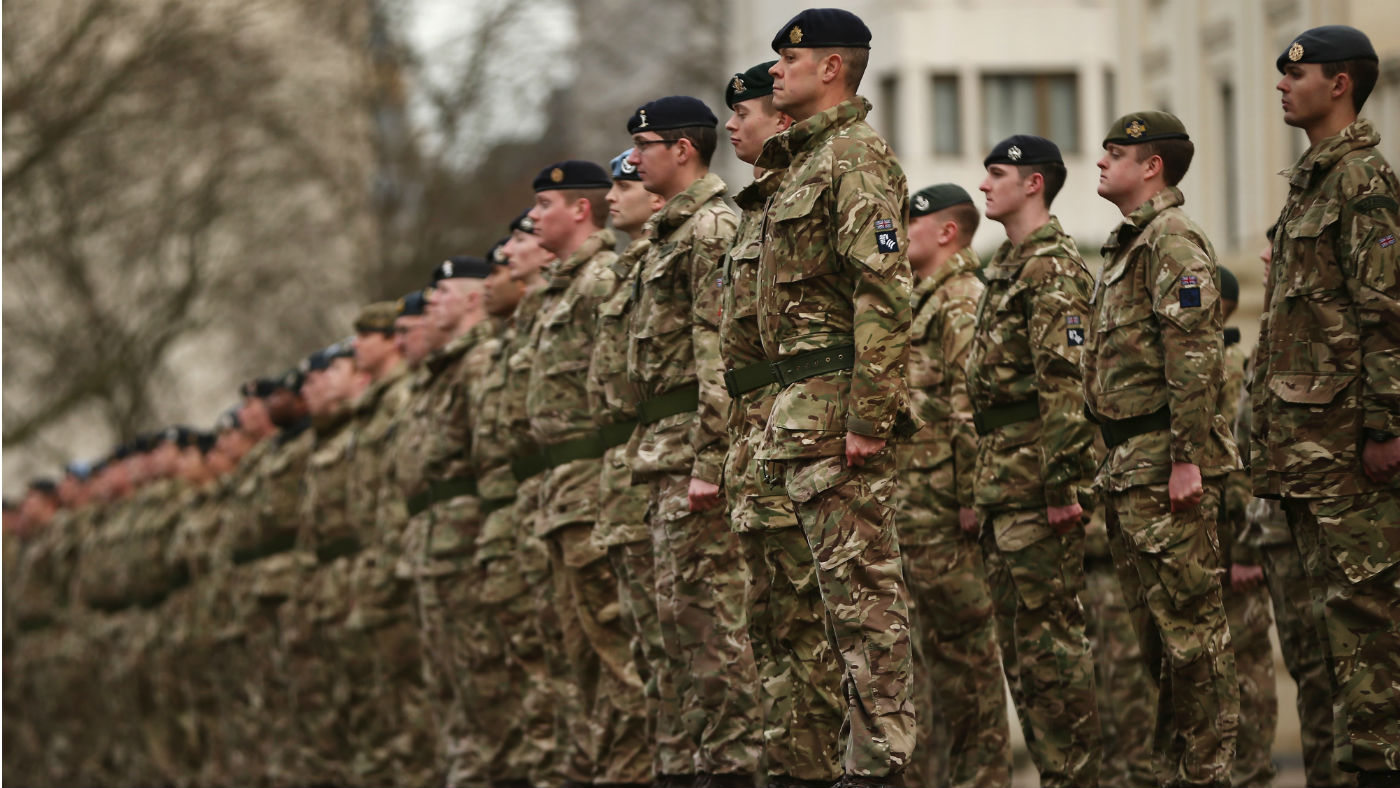
A free daily email with the biggest news stories of the day – and the best features from TheWeek.com
You are now subscribed
Your newsletter sign-up was successful
The first weekend of the general election campaign has been largely dominated by Rishi Sunak's pledge to bring back national service for 18-year-olds.
Under the £2.5 billion-a-year mandatory scheme, teenagers will have the option of enrolling in the military for 12 months or spending one weekend each month volunteering in their community. Sunak added that, if elected, he would set up a royal commission to look at how the roughly 30,000 annual participants could use the scheme to get a "leg up" in their career.
Labour has been quick to reject the Conservative plan as a "headline-grabbing gimmick" but, the Financial Times (FT) said "the prime minister's allies believe the plan has achieved something that has eluded him for months: a hearing."
The Week
Escape your echo chamber. Get the facts behind the news, plus analysis from multiple perspectives.

Sign up for The Week's Free Newsletters
From our morning news briefing to a weekly Good News Newsletter, get the best of The Week delivered directly to your inbox.
From our morning news briefing to a weekly Good News Newsletter, get the best of The Week delivered directly to your inbox.
So what are the arguments for and against national service?
Pro: skills and 'life lessons'
Modern national service places a huge emphasis on skills and learning. Teenagers who choose to sign up for a placement in the armed forces would "learn and take part in logistics, cybersecurity, procurement or civil response operations", the Tories have said.
Last year, the influential right-leaning think tank Onward argued that national service could help "develop skills, improve mental wellbeing" and "increase a sense of belonging among Britain’s youth".
Some form of public service, military or civilian, already operates in roughly 80 countries around the world, including France, Denmark, Sweden and Switzerland, noted Simon Jenkins in The Guardian. It "broadens the outlook of young people, rich and poor, and brings them into contact with public services. It may even encourage them to go straight into work rather than potentially waste years at university."
A free daily email with the biggest news stories of the day – and the best features from TheWeek.com
Con: cost
Critics point that the £2.5 billion price tag would cover just 30,000 annual participants – out of a total of 700,000 school leavers a year – hardly value for money when budgets are tightening across government.
A similar scheme, the National Citizen Service, introduced by David Cameron when he was PM, had its funding slashed in 2022 by then-chancellor Rishi Sunak, after an investigation in The Independent found the scheme had consistently failed to meet government targets or deliver value for money, with one former board member calling it little more than a "holiday camp for mostly middle-class kids".
Sunak has vowed to partially fund the national service scheme by cracking down on tax evasion but the remaining £1.5 billion would be paid for with money previously allocated to the UK Shared Prosperity Fund used for "levelling up" disadvantaged areas.
Pro: better public understanding
A 2020 report commissioned by the Ministry of Defence highlighted a lack of understanding among the general public about the role of the armed forces, and said reintroducing national service could help to close this "communication gap" reported the Daily Mail.
"For some immigrant communities in Britain, armed forces are agents of oppression, not defenders of democratic values," wrote the report's author, military historian Professor Hew Strachan, adding that "not to discuss national service [in the UK] is to limit the debate artificially."
Con: diverts military resources
The FT reported that Sunak's national service plan has "caused concern in the armed forces, amid fears it could impose strains on the military".
Only last week, the idea was rejected by defence minister Andrew Murrison, who said that having unwilling national service recruits "could damage morale, recruitment and retention and would consume professional military and naval resources".
The army has made clear it does not want amateur conscripts, with a report from the Royal United Services Institute think tank in May warning mandatory military service "is neither the right question nor the answer to the UK's needs".
Pro: 'shared sense of purpose'
The prime minister insisted that his plans for mandatory national service would help unite society in an "increasingly uncertain world" and give young people a "shared sense of purpose".
In what The Independent called an "apparent pitch to older voters", the PM said that volunteering could include helping local fire, police and NHS services, as well as charities tackling loneliness and supporting elderly and isolated people.
Such an appeal to national unity is often evoked by supporters of national service. When President Emmanuel Macron announced in 2018 that he was bringing back national service in France, he argued that doing so would inspire patriotism and "encourage young French citizens to take part in the life of the nation, and promote social cohesion", the BBC reported at the time.
By the time the scheme came into effect in 2019, it had evolved from a national military service into a compulsory civic service, "with input from the military but without any dealings with weapons", according to The Guardian. Participants instead learn about first aid, self-defence and republican values as a way of bringing "social cohesion" to a fractured nation.
Con: promotes nationalism
When Macron's compulsory national service began in France in 2019, many commentators were disturbed by images showing French teenagers lined up in uniform – albeit baseball caps and polo shirts.
Celine Malaise, a communist regional councillor, posted on X: "This old nationalist nightmare repulses me." She likened it to "denying the free will of young people, their engagement, their critical spirit" and called the programme a hypocritical "masquerade" given the underfunding of schools.
Meanwhile, the Union Nationale Lycéenne (National Union of Secondary Students) said: "Is it in keeping with the times to constrain young people to go and sing under a flag at 8am in the morning? This universal national service must not be made compulsory."
-
 Local elections 2026: where are they and who is expected to win?
Local elections 2026: where are they and who is expected to win?The Explainer Labour is braced for heavy losses and U-turn on postponing some council elections hasn’t helped the party’s prospects
-
 6 of the world’s most accessible destinations
6 of the world’s most accessible destinationsThe Week Recommends Experience all of Berlin, Singapore and Sydney
-
 How the FCC’s ‘equal time’ rule works
How the FCC’s ‘equal time’ rule worksIn the Spotlight The law is at the heart of the Colbert-CBS conflict
-
 Operation Rubific: the government's secret Afghan relocation scheme
Operation Rubific: the government's secret Afghan relocation schemeThe Explainer Massive data leak a 'national embarrassment' that has ended up costing taxpayer billions
-
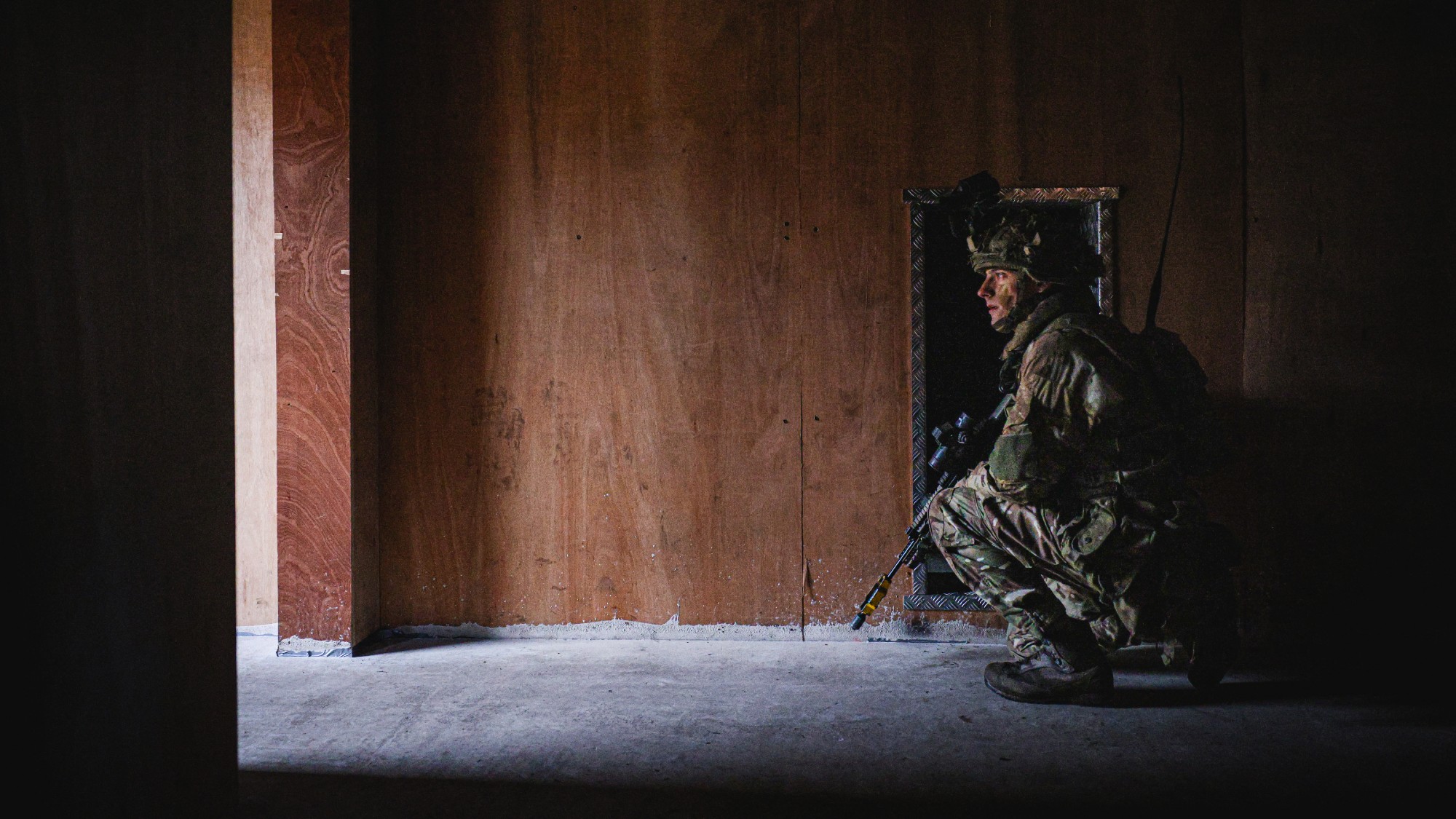 The state of Britain's Armed Forces
The state of Britain's Armed ForcesThe Explainer Geopolitical unrest and the unreliability of the Trump administration have led to a frantic re-evaluation of the UK's military capabilities
-
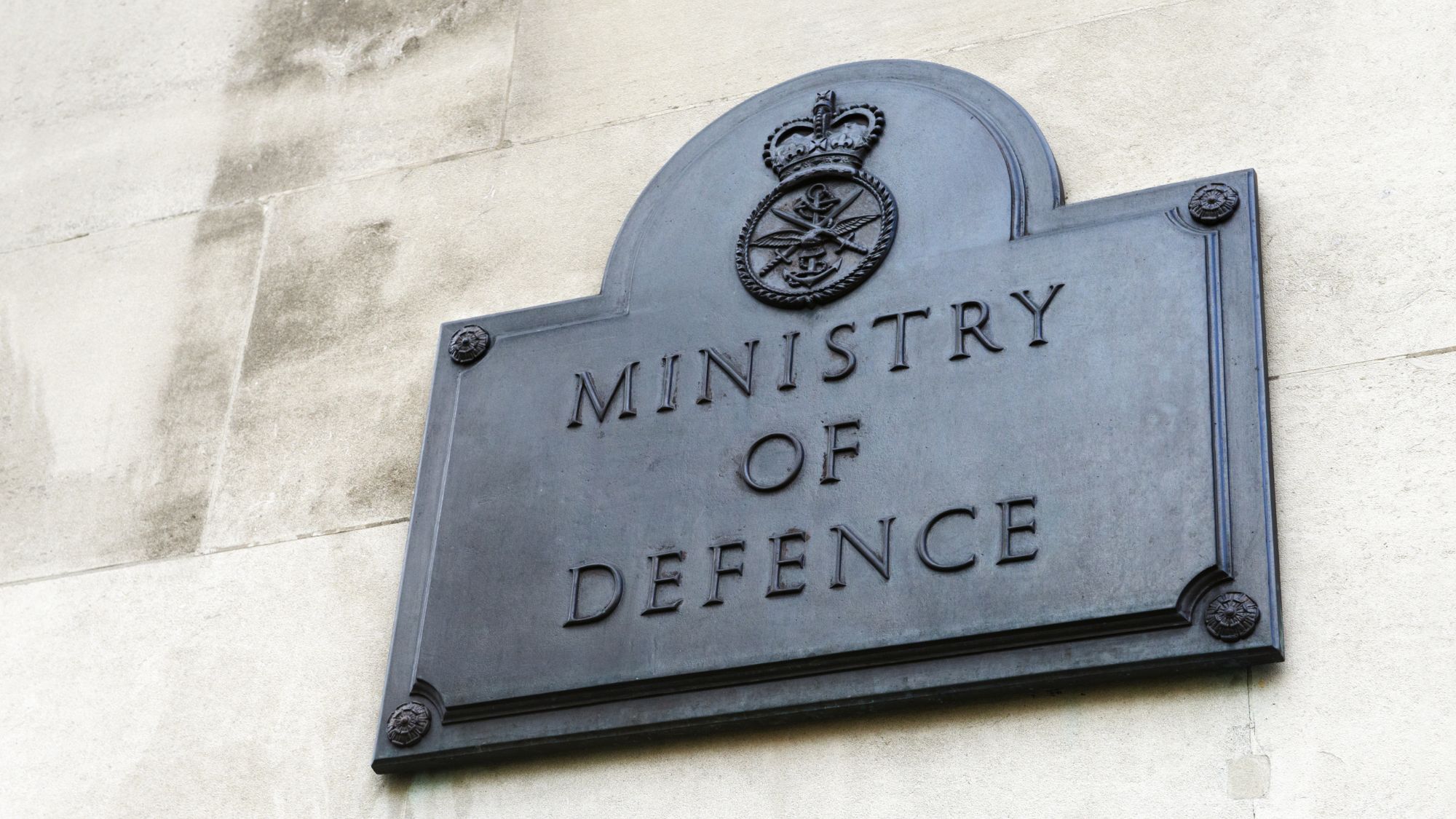 British Armed Forces personnel details 'hacked by China'
British Armed Forces personnel details 'hacked by China'Speed Read The Ministry of Defence became aware of the breach 'several days ago'
-
 Labour and nuclear weapons: a turbulent ideological history
Labour and nuclear weapons: a turbulent ideological historyThe Explainer From the 1940s to Keir Starmer, the party leadership has zigzagged in and out of love with the bomb
-
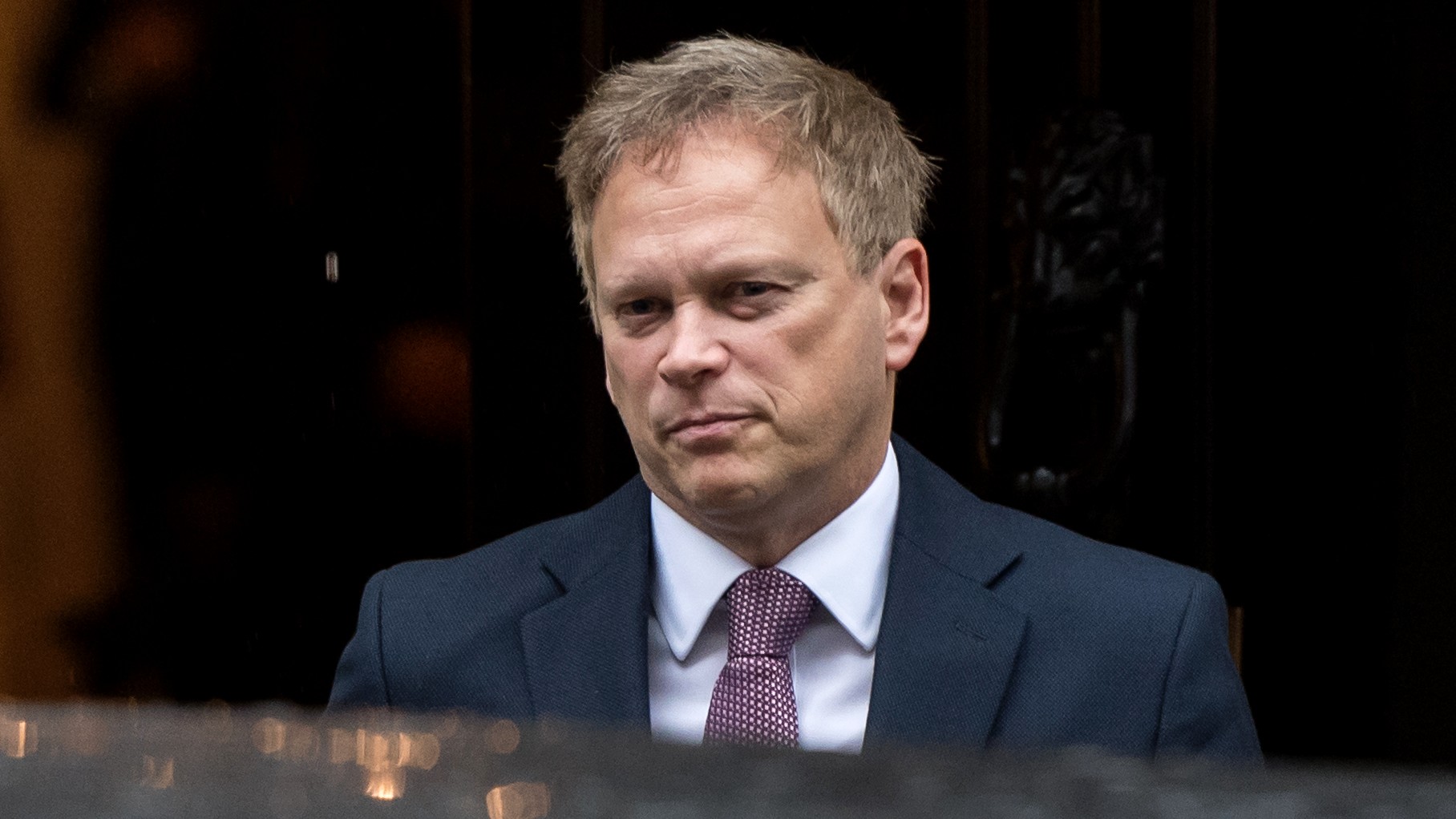 Grant Shapps goes to war on military's 'woke' diversity policies
Grant Shapps goes to war on military's 'woke' diversity policiesTalking Point Defence secretary condemns 'extremist culture' as Army reportedly plans to relax security checks on overseas recruits
-
 The US takeover of UK defence
The US takeover of UK defenceIn the Spotlight Sell-off of key defence assets is hardly conducive to an independent foreign policy
-
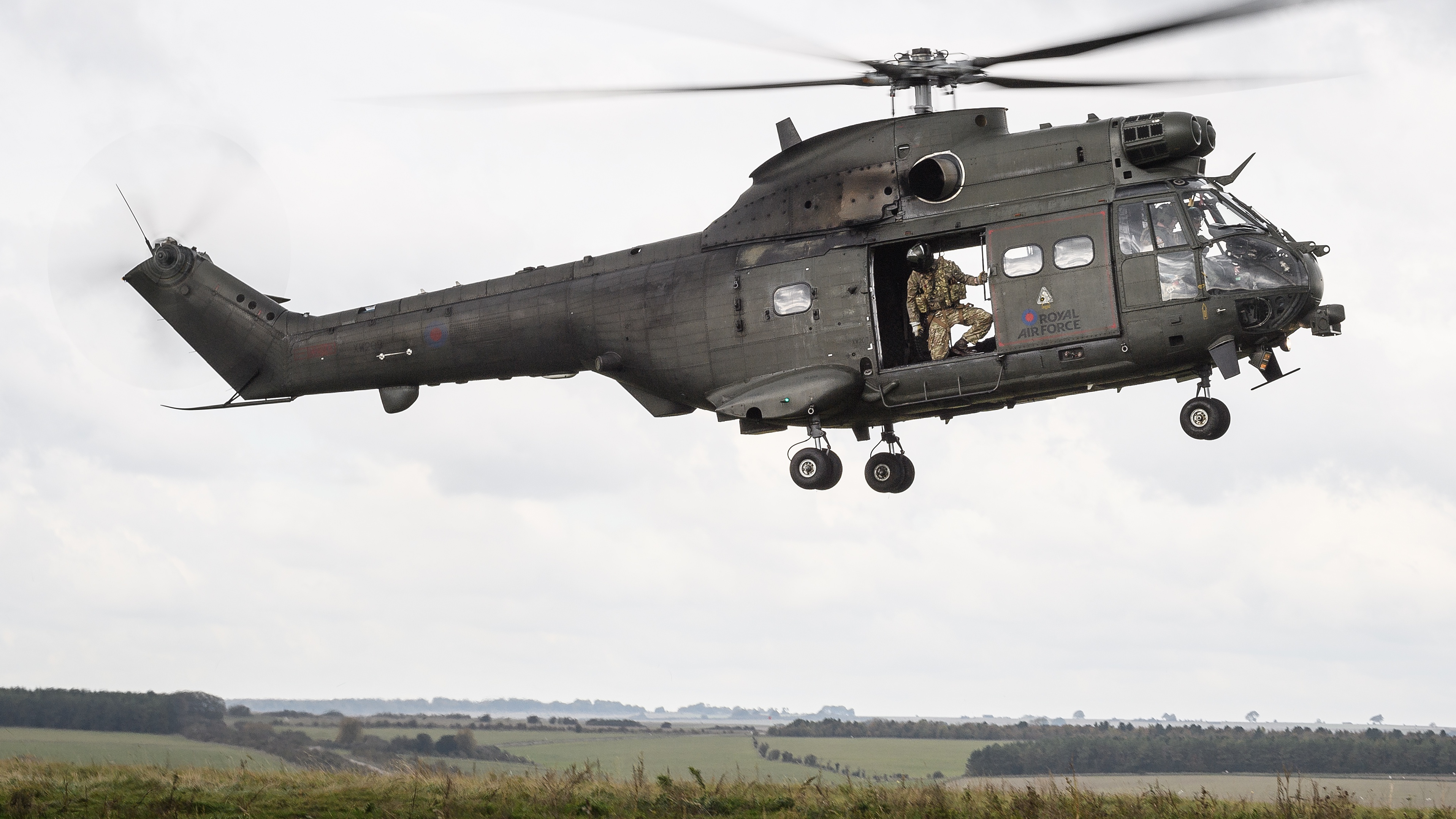 Panic as British Army boss gets lost during training in Wiltshire
Panic as British Army boss gets lost during training in WiltshireSpeed Read Mark Carleton-Smith declared missing in action during exercise on Salisbury Plain
-
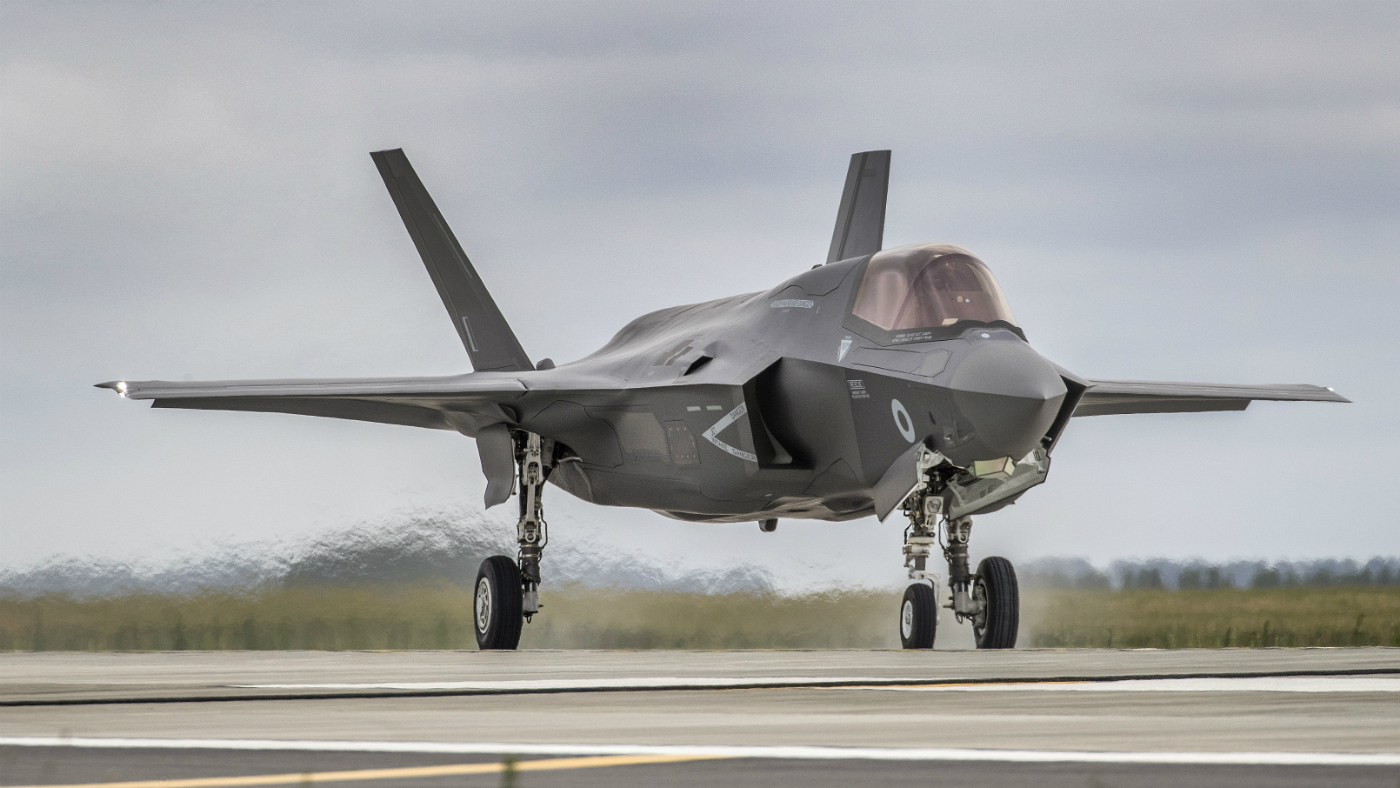 Why UK’s 16 new F-35 fighter jets can’t fly
Why UK’s 16 new F-35 fighter jets can’t flySpeed Read Stealth aircraft grounded as faulty fuel tube blamed for US military plane crash